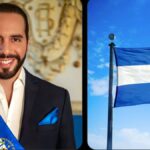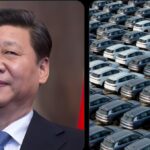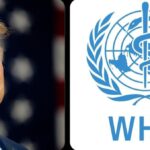Colombian President Petro blocks the entry of American planes transporting migrants back to Colombia
In a move that has captured the attention of the international community, Colombian President Gustavo Petro has decided to block the entry of American planes transporting migrants back to Colombia. This decision comes amid growing concerns over the ongoing migrant crisis in the Americas and the role of the United States in handling the situation. Petro’s action has sparked a heated debate over the handling of migration, the responsibilities of different countries, and the larger political dynamics at play between Colombia and the U.S.
The Blockade: What’s Happening?
President Gustavo Petro’s decision to prevent American planes from landing in Colombia carrying deported migrants reflects his growing frustration with the U.S.’s approach to immigration and its impact on Colombia. The situation began to escalate when the U.S. increased its efforts to deport migrants from American soil, many of whom had traveled through Colombia on their way to the U.S. This surge in deportations led to the blocking of these flights, signaling Petro’s dissatisfaction with how the U.S. has been handling the issue.
Petro’s government has made it clear that this decision is part of a broader strategy to address what it sees as an unfair burden placed on Colombia by the U.S. This action highlights Colombia’s growing concerns about its role in the migration crisis and its frustration with the way the United States has handled migrant flows from Central and South America.
The U.S. Response: Tensions Rise
The American government has expressed concern over Petro’s decision, which it sees as a challenge to the international agreements between Colombia and the United States. For years, the U.S. has relied on Colombia to help manage the flow of migrants, often using the country as a transit point for individuals making their way to the United States. Colombia has been under significant pressure to help manage the growing number of migrants arriving from countries like Venezuela, Cuba, and other parts of Central America. However, the sudden move to block the return flights has intensified tensions between the two nations, raising questions about the future of their relationship.
The U.S. State Department has urged Colombia to reconsider its position, arguing that deportation flights are a necessary tool in managing migration flows and ensuring that those who are illegally present in the United States are returned to their countries of origin. In addition, U.S. officials have pointed to the strain that large numbers of deported migrants could place on Colombia’s already overstretched immigration system.
The Migration Crisis: Why Colombia?
Colombia has long been a critical player in the migration crisis, particularly as a transit country for people fleeing poverty, violence, and instability in countries like Venezuela. The situation has become even more complicated in recent years as Colombia has faced its own internal challenges, including economic instability, drug trafficking issues, and the ongoing impact of the COVID-19 pandemic. With thousands of people crossing its borders each day, Colombia’s capacity to handle the influx of migrants has been severely tested.
Colombian authorities have been forced to manage not only the physical safety and security of migrants but also the social services, health care, and housing needs of these individuals. This strain on resources has led to rising tensions between the local population and migrant communities, with many Colombians expressing frustration over the perceived economic and social costs of the migration crisis. The influx of migrants is putting additional pressure on the Colombian government, and Petro’s decision to block the flights signals his desire to recalibrate the country’s role in this broader geopolitical issue.
Political and Economic Implications of the Decision
Petro’s decision is likely to have far-reaching consequences, both domestically and internationally. Domestically, it could influence public opinion and the political landscape in Colombia. While some Colombians may view the blockade as a necessary step to protect the country from further strain, others may see it as an act of defiance that could undermine Colombia’s relationship with the U.S. and jeopardize foreign aid or cooperation on other important issues. The political landscape in Colombia is already polarized, with Petro facing criticism from both conservative and liberal factions for different aspects of his policies.
On an international level, the decision could have a ripple effect, influencing other countries in the region that are also struggling with the migration crisis. Countries like Panama, Ecuador, and Costa Rica have similarly found themselves caught in the middle of this ongoing issue, with increasing numbers of migrants traveling through their territories in search of better opportunities. Petro’s stance could serve as a model for other nations in the region, potentially prompting a reevaluation of the responsibilities that countries like the U.S. and Colombia should bear in managing migration.
Looking Ahead: What’s Next for Colombia and the U.S.?
The situation remains fluid, and both Colombia and the U.S. are likely to engage in diplomatic discussions to resolve the impasse. It is still unclear how this decision will play out in the long term, but it will certainly have a significant impact on future migration policies and the relationship between the two nations. One thing is certain: the issue of migration is far from resolved, and as both countries navigate these complex challenges, it is likely that their cooperation, as well as their tensions, will continue to evolve in the coming months.

















Post Comment